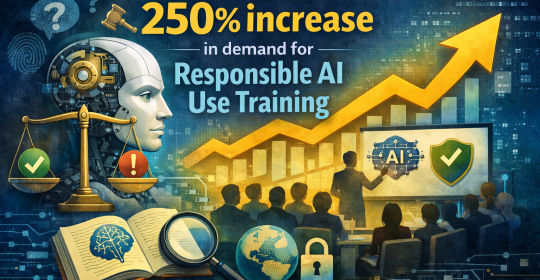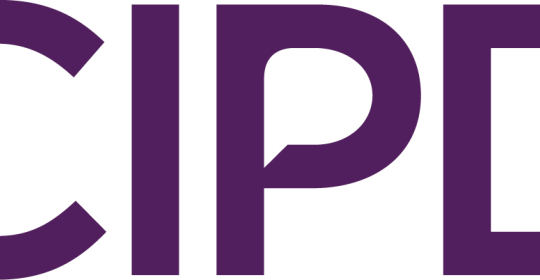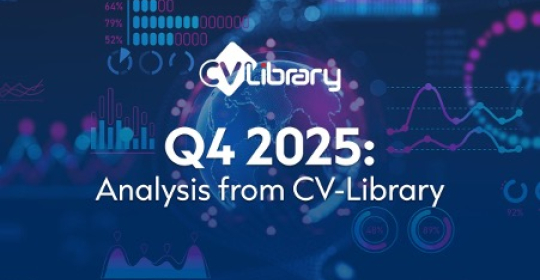- Unique Research on what Gen Zs hate about their boss and value about work
- 55% of bosses are worried about managing the next wave of workers; 78% are ill-prepared
According to new research, "Not being told what to do," salary, flexible working and regular training and development, are just some of the things that are important to the next wave of workers now entering the workforce - the Generation Zs (also known as 'iGens' or 'post-millennials').
The Gen Z study entitled, 'The Next Generation of Workers' by global leadership development and sales performance experts, Forum, asked those born between 1994 and 2000, what they find important in a job, what irritates them about a boss and the challenges leaders foresee in attracting and retaining post-millennials.
Gen Zs top six most important things about a job
- Salary (67%)
- Flexible working & good work-life balance (40%)
- Job security (39%)
- Training & development (29%)
- Good holiday allowance/day off for birthday/ duvet days (18%)
- A variety of work (17%)
Gen Zs top six irritations about a boss
- Lies, gossips and is untrustworthy (36%)
- Isn't clear in their instructions (34%)
- Shows little appreciation and praise (32%)
- Takes credit for other's work (31.60%)
- Expects me to put my work ahead of my personal life (31.6%)
- Doesn't spend time training & developing me (26%)
Flexible working and good work-life is highly important to Gen Zs. In fact, 14% dislike 9 to 5.30 office based routines, and 27% hate being told what to do, or having to follow instructions (especially if they aren't clear), showing that an element of freedom and flexibility to work as and how they please, is critical to their motivation.
However, Gen Zs do expect managers to guide and mentor with 26% describing bosses that don't spend time training and developing, as 'irritating.' 35% are eager to develop new skills, which they consider a strength, 45% prefer to learn these skills via regular training and mentoring by a line manager or mentor and 17% are attracted by employers that offer a variety of work, which will help them to expand their abilities. However, 26% of leaders feel that meeting the training and development needs of this generation will be challenging.
Gen Zs least worried about
Surprisingly, working for companies with clear diversity policies and that show good gender equality are of least importance (14%) despite heighten public awareness on the importance of such workplace practice, and only 3% are attracted by employers with apparent corporate social responsibility programmes. Also astonishingly, just 7% of this generation, otherwise known as the 'iGeneration' - born during the spread of home internet use and the mobile phone - put access to the latest technology as essential in a job, and only 4% worry about working in a modern office environment with the latest facilities and permission to use social media at any time.
Bosses are out of touch with what Gen Zs want
The research found a disconnect between what leaders think will attract Gen Zs and what actually appeals to the next wave of workers. Only 23% of leaders, compared to the 40% of Gen Zs, identify flexible working and good work-life balance as a means of attracting and retaining this generation. Leaders also went for the more 'stereotypical' answers with 27% (vs 7% - around four times more than Gen Zs) ticking 'having the latest technology' as important to post-millennials; 23% (vs 4% - approximately six times more than Gen Zs) choosing 'an improved office environment and modern facilities' and nearly twice as many leaders (21%) as post-millennials (14%) believe that having strong diversity policies and demonstrating good gender equality is key.
Where managers and Gen Zs agree is on the value of training and better job security, with similar results on both sides. 38% of leaders said their company needs to offer better learning and development (versus 29% of Gen Zs valuing L&D), and 33% of managers admit that they need to invest more of their time in training their team to attract this next generation of worker.
More than a quarter of leaders also recognise that this generation wants to be communicated to regularly with 34% of Gen Zs annoyed by bosses that are not clear in their instructions and 19% put off by a leader that offers very little face-to-face contact. But only around 13% of managers realise the value of other soft skills such as praise, and being open and honest with just 7% placing importance on listening and encouraging ideas. Yet, over 30% of post-millennials dislike managers who show a lack of appreciation and give little recognition, or appear untrustworthy by lying or taking credit for other's work.
Bosses are worried
A combined 55% of leaders are highly (34%) and moderately (21%) concerned with Gen Zs entering the workplace. However, as many as 36% of managers have had no training and 42% have been prepared 'to some extent' for the possible challenges of managing this new generation of workforce, which 20% of managers expect to be things such as an increase in conflict and workplace tension between generations.
26% are worried by Gen Zs inadequate face-to-face communications with a further 30% worried about their resistance to being told what to do and 'thinking they know it all.' Lack of basic literacy and maths skills, general appearance and manners are also worries.
The number one anxiety for leaders however, is the speed at which Gen Zs expect things to happen. Thirty-nine per cent cited Gen Zs need for instant gratification and 24% highlighted their expectation
for quick promotion as challenges and their concerns appear correct. Over a quarter of Gen Zs (27%) admit to having a short attention span and wanting information and everything done instantly with 20% put off by a manager that is slow to respond. Yet despite these findings, only 12% of leaders rated 'a quick response' as important when managing these workers, also indicating a need for better understanding when leading Gen Zs.
"Industries worldwide are suffering a shortage of skills," said Cynthia Stuckey, Managing Director of Forum. "Organisations must be flexible to change and equip leaders with the knowledge they need to successfully manage multi--generational workforces in a way that attracts, develops and retains a robust pipeline of talent."
Cindy continues, "Ensure your leaders have a deep understanding of this generation including how they work, and what motivates and engages them compared to the rest of the team. Only then can the business prepare effectively; working out changes to policies, work structures, management styles, and what new skills are needed to acquire and retain Gen Zs. For example, our findings show a thirst for learning so support Gen Zs in their speedy development by exposing them to new projects or roles. Respond to their needs and you'll be a magnet for this new wave of talent."






